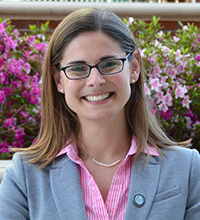|
Amelia MacKenzie, PhD
$70,002 Awarded June 2019 Rebecca Callahan, PhD
$39,956 Awarded May 2019 |
FHI 360FHI 360
Durham, North Carolina About
FHI 360 is an international nonprofit working to improve the health and well-being of people in the United States and around the world. They partner with governments, the private sector and civil society to bring about positive social change and to provide lifesaving health care, quality education and opportunities for meaningful economic participation. They do this by using research and evidence to design and deliver innovative programs that change behaviors, increase access to services and improve lives. With a staff of more than 4,000 professionals working in more than 60 countries, their diverse technical expertise and deep understanding of local conditions provide a 360-degree perspective that allows them to develop customized responses to the toughest human development challenges. Our Grant
MCI supported FHI 360 through two separate grants related to male contraception. One grant facilitated a secondary analysis of focus group discussion data gathered in Uganda and Burkina Faso, where male and female participants expressed support for new male contraceptive options. Participants on both sides recognize that male methods could reduce the family planning burden on women, and offer men greater control over their fertility. The second grant facilitated a landscaping survey of male contraceptive targets, illustrating challenges, advantages, and strategies to de-risk targets and move them forward. |
Publications
Cartwright, Alice F., Anna Lawton, Aurélie Brunie, and Rebecca L. Callahan, ‘What About Methods for Men? A Qualitative Analysis of Attitudes Toward Male Contraception in Burkina Faso and Uganda’, International Perspectives on Sexual and Reproductive Health, 46 (2020), 153–62 <https://doi.org/10.1363/46e9720>
Cartwright, Alice F., Anna Lawton, Aurélie Brunie, and Rebecca L. Callahan, ‘What About Methods for Men? A Qualitative Analysis of Attitudes Toward Male Contraception in Burkina Faso and Uganda’, International Perspectives on Sexual and Reproductive Health, 46 (2020), 153–62 <https://doi.org/10.1363/46e9720>


